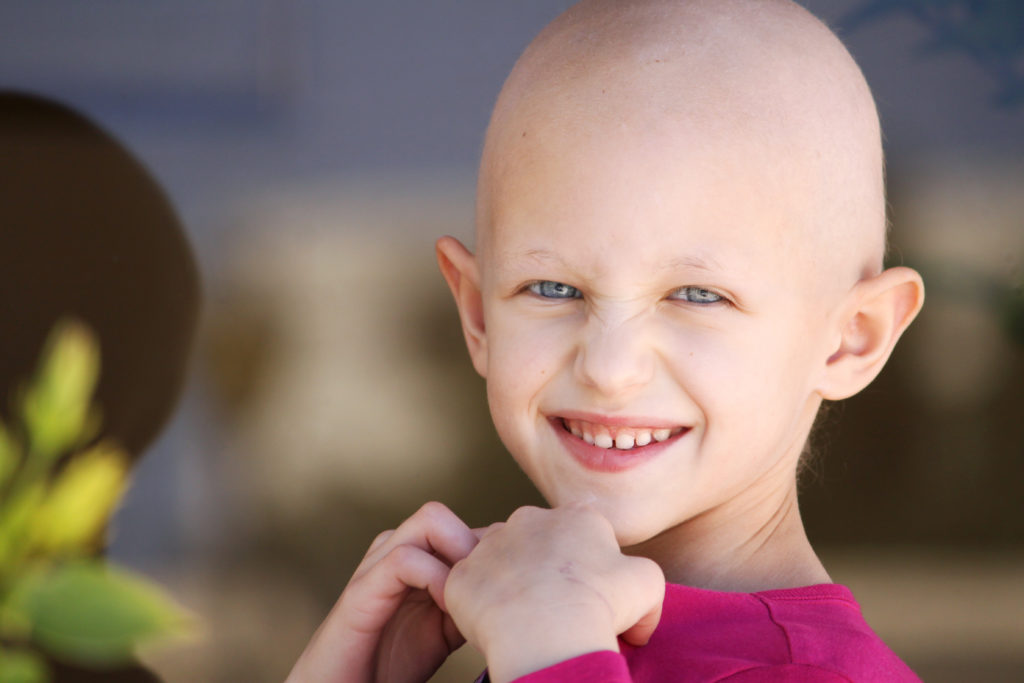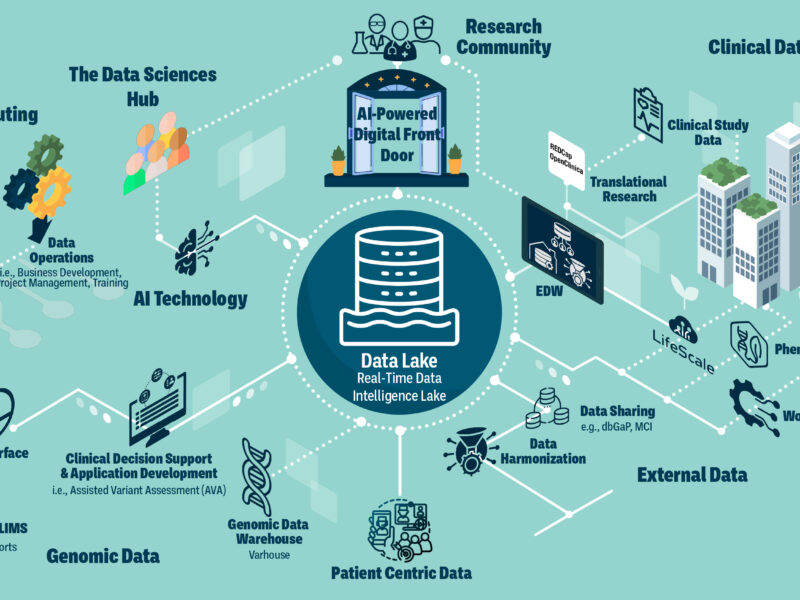Oncolytic Virus Immunotherapy Safe and Tolerable in Children With Relapsed or Refractory Solid Tumors
Oncolytic Virus Immunotherapy Safe and Tolerable in Children With Relapsed or Refractory Solid Tumors https://pediatricsnationwide.org/wp-content/uploads/2020/06/AdobeStock_57532575-1024x683.jpg 1024 683 Lauren Dembeck Lauren Dembeck https://pediatricsnationwide.org/wp-content/uploads/2021/03/Dembeck_headshot.gif- October 09, 2023
- Lauren Dembeck

The overall survival rates for children with childhood cancers is now over 80%; however, for children with relapsed and refractory tumors, the survival rates remain low.
“For example, children with relapsed or refractory neuroblastoma have a five-year survival of less than ten percent,” explains Keri A. Streby, MD, director of the Neuroblastoma Program in the Division of Hematology, Oncology and Blood and Marrow Transplant at Nationwide Children’s Hospital. “There is an urgent need for novel therapies for children with relapsed or refractory cancers.”
Dr. Streby and colleagues recently reported the results of an international phase 1 study of an oncolytic virus-based immunotherapy, talimogene laherparepvec (T-VEC), in the treatment of pediatric patients with advanced non-central nervous system tumors. The study was published in Frontiers in Pediatrics.
“Pediatric cancers are considered ‘cold’ tumors, meaning they have low mutational burdens and fewer infiltrating T cells, so they are not as prone to respond to the standard immunotherapies,” adds Dr. Streby. “Oncolytic viruses target cancer cells and cause an antitumor immune response; thus, injecting T-VEC into a pediatric tumor may turn a ‘cold’ tumor into a ‘hot’ tumor, meaning that, in addition to the antitumor effect of the treatment itself, other immunotherapies may work better when used in combination with T-VEC.”
The study’s primary objective was to evaluate the safety and tolerability of T-VEC, assessed by the incidence of dose-limiting toxicities. Its secondary objectives included to evaluate efficacy, indicated by response and survival.
The study enrolled 15 patients into two cohorts based on age, one including adolescents and young adults aged 12 to 21 years (n = 13) and one including younger children aged 2 to 11 years (n = 2). Most of the patients in the older cohort were diagnosed with soft-tissue sarcoma or bone sarcoma, and both patients in the younger cohort had melanoma.
T-VEC, which was the first oncolytic virus to be FDA-approved for adults with melanoma, was injected directly into patients’ tumors at the same dose levels as those used in adults. On the first treatment day, a dose of 106 plaque-forming units (PFU)/mL was administered, followed by 108 PFU/mL on the first day of week 4 and every 2 weeks thereafter.
The children received treatment for a median of 5.1 weeks (range, 0.1 to 39.4 weeks). No dose-limiting toxicities were observed. At least one treatment-emergent adverse event (TEAEs) occurred in all patients, with 86.7% of patients experiencing a treatment-related TEAE.
“We demonstrated that this new treatment is safe and tolerable in children with relapsed or refractory disease, and the treatment-emergent adverse events that occurred were expected based on the known safety profile T-VEC in adults,” shares Dr. Streby, who is also an assistant professor at The Ohio State University College of Medicine.
Following T-VEC treatment, no complete or partial responses were observed. Three patients (20%) achieved stable disease as the best response.
“Unfortunately, a lot of these kids had disease progression after T-VEC treatment,” adds Dr. Streby. “In kids with relapsed or refractory tumors, stable disease can be a good sign. For pediatric cancers, we have learned that they often need to be treated with a combination of therapies. T-VEC may prove to be more efficacious in combination with other therapies in this setting.
“September is International Childhood Cancer Awareness Month, so I think is important to bring awareness to the fact that less than four percent of the National Cancer Institute funding goes to pediatric cancer research. It is a real challenge to get new therapies into pediatric clinical trials,” says Dr. Streby. “We owe a lot to the families and patients who sign up for phase 1 trials like this one because without them we would never be able to learn if these new treatments are safe or effective. Patients and families know when they enroll on these studies that there may not be any direct benefit for their child, but they sign up anyways to help future kids.”
Reference:
Moreno L, Teira P, Croop JM, Gerber NU, André N, Aerts I, Gros Subias L, De Wilde B, Bautista F, Turpin B, Kunduri S, Hamidi A, Lawrence T, Streby KA. A phase 1, first-in-child, multicenter study to evaluate the safety and efficacy of the oncolytic herpes virus talimogene laherparepvec in pediatric patients with advanced solid tumors. Front Pediatr. 2023 May 24;11:1183295.
About the author
Lauren Dembeck, PhD, is a freelance science and medical writer based in New York City. She completed her BS in biology and BA in foreign languages at West Virginia University. Dr. Dembeck studied the genetic basis of natural variation in complex traits for her doctorate in genetics at North Carolina State University. She then conducted postdoctoral research on the formation and regulation of neuronal circuits at the Okinawa Institute of Science and Technology in Japan.
-
Lauren Dembeckhttps://pediatricsnationwide.org/author/lauren-dembeck/
-
Lauren Dembeckhttps://pediatricsnationwide.org/author/lauren-dembeck/
-
Lauren Dembeckhttps://pediatricsnationwide.org/author/lauren-dembeck/
-
Lauren Dembeckhttps://pediatricsnationwide.org/author/lauren-dembeck/January 29, 2019







